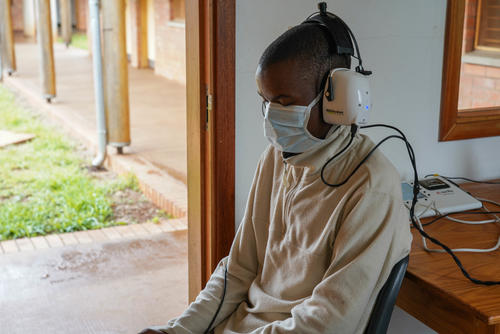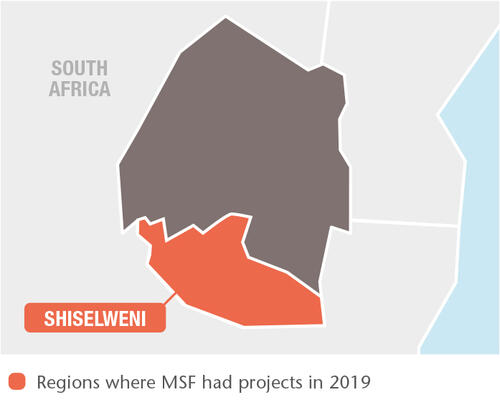
6,900
6,9
230
23
260
26
Around one-third of adults in Eswatini are currently living with HIV, and many of them are co-infected with other diseases, such as TB. Médecins Sans Frontières (MSF) continues to look at ways to reduce the incidence and transmission of the diseases and improve patient care.
In 2019, our focus was to ensure that effective, innovative and sustainable HIV/TB prevention, diagnosis and treatment interventions were available to vulnerable people in Shiselweni region.
The first new initiatives were the introduction of postnatal clubs for mothers and their babies, as well as clubs for youths and teens, and the establishment of health posts in remote communities. We also piloted the timely diagnosis of Acute HIV Infection (AHI), the first stage of HIV, which is not detected with routine testing, to prevent the early spread of the disease. Approximately four per cent of patients who came for outpatient consultations with symptoms suggestive of HIV infection presented with AHI and initiated HIV treatment.
Our teams also improved interventions at general healthcare and at community level, for example making pre-exposure prophylaxis more easily available for people at high risk of HIV infection and training community health workers and traditional healers to distribute HIV self-testing kits. In addition, we began preparations to integrate care for non-communicable diseases (hypertension and diabetes) into 10 'one-stop shop' HIV/TB general healthcare clinics.
We continued to work on improving drug-resistant TB diagnosis and care, including preparing for the implementation of oral-only shorter course treatment regimens (9-12 months). Advocating better treatment options for patients with advanced HIV remained a cornerstone of our work.
Finally, the cervical cancer screening programme and the viral load/ TB laboratory were handed over to the Ministry of Health.

















